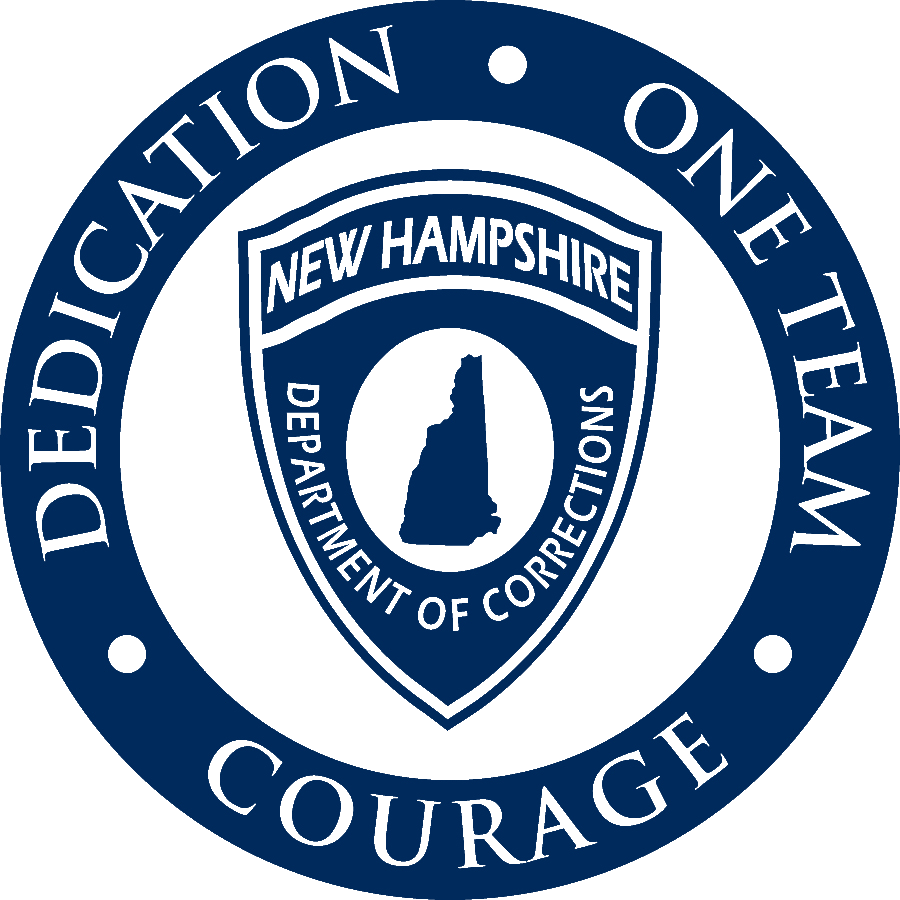Programs
The New Hampshire Department of Corrections Division of Rehabilitative Services provides education, training, skills, spirituality, and personal development opportunities, which encourage positive work habits, promote pro-social behaviors and prepare residents for re-entry to the community. While the Division of Medical and Forensic Services is committed to providing those in our care with a wide range of programming designed to enhance wellness, learn new skills, and encourage behavioral change.
These individualized programs include behavioral health, sexual offender treatment, and treatment programs for substance use disorders.
Religious Services
The NHDOC recognizes the importance of spiritual connectedness for all of our residents and works to accommodate all religious/spiritual entities. The Department employs three full-time chaplains and one part time chaplain. A chapel and spiritual services are offered in each of our correctional facilities. The chaplains provide spiritual guidance to help residents express personal faith and participate in meaningful worship. Many spiritual leaders volunteer their time to provide religious services in the prisons.
Education
Corrections Special School District (CSSD) is a unique entity that exists within the New Hampshire State Prison System. As a result of RSA 194:60 in 2008, Corrections Special School District was formed through an Interagency Agreement between the New Hampshire Department of Education and the New Hampshire Department of Corrections. Corrections Special School District offers, both male and female residents, the ability to enhance their knowledge through educational and vocational programs creating an avenue of success toward acceptable social and economic behavior. Corrections Special School District is comprised of Granite State High School (GSHS) and the Career and Technical Education Center (CTEC), which exists at the New Hampshire State Prison for Men, Concord, the New Hampshire Correctional Facility for Women, Concord, and the Northern New Hampshire Correctional Facility, Berlin. The Corrections Special School District guidance department has continued to help men and women select education and career goals from the school district’s offerings, as well as help them achieve those goals through attaining their high school diploma, high school equivalency, and other educational pathways.
Behavioral Health Units
Other levels of care in the NHDOC system provide for admission to one of our behavioral health residential units: The Residential Treatment Unit for men located in Concord; the Wellness Block for men located in Berlin; and the Wellness Block for women located in Concord. The Wellness Units continue to show that a combination of clinical services based on a commitment to change will show positive results. These units are designed to support residents toward the achievement of personal goals while emphasizing the power that is derived from a positive group and milieu experience. Promoting a sense of community is the philosophy driving these units in order to prepare participants to be part of a positive community culture while in prison as well as for preparation for life after prison. Participants in these units identify the value of good communication skills as problem-solving techniques versus the use of violence. Participants in the wellness units also have to participate in at least one of the following committees: Steering, Welcome, Activities, Health and Safety, Art, Peer Support, and Changing Social Norms. Participation in these units is voluntary.
Career and Technical Education Center
The Career and Technical Education Center continues to offer eight career and technical education training programs. These programs provided opportunities to develop foundational skills and core competencies in relevant occupational areas in preparation for successful reentry into society. All interested students meet with the Guidance staff who guides them through identifying their occupational interests, assesses their readiness, and facilitates their program enrollment.
Outpatient Behavioral Health
At the point of entrance into our system, behavioral health clinicians conduct a screening to identify those with ongoing behavioral health issues and those who have a need for behavioral health services. Behavioral health clinicians collaborate with security and other healthcare staff to identify and intervene quickly if risky or concerning behaviors are observed. Behavioral Health Services meet the needs of individuals with a wide range of diagnoses as well as distinct populations including those with gender dysphoria, sexual resident histories and trauma-related issues.
Sexual Offender Treatment (SOT) Services
Utilizing a risk-need-responsivity model that was developed on evidence-based practices, SOT services emphasize skill development designed to promote safety and self-management. All individuals are assessed to determine level of care needs. Individuals referred and/or identified through the classification process are provided a full psychosexual assessment. The primary modality is an intensive model, located in Concord, which incorporates SOT protocols into a therapeutic milieu. If a less intensive level of care is needed based on the assessment, or if individuals are unable to reside in the residential unit, a plan of treatment will be devised to meet their needs.
The capacity for the intensive program is 80 with an additional 24 beds for program graduates to stay and serve as mentors.
Substance Use Treatment
The Focus Unit Program, which is a residential unit that provides substance use disorder treatment services with an emphasis on rehabilitation and wellness, this program is available to men at NNHCF and for women at NHCFW. The goals of the Focus Unit are to help individuals re-learn behaviors and develop coping skills/wellness strategies for managing substance use disorders. Participants are assisted with follow up services after completion of the Focus Unit program.



